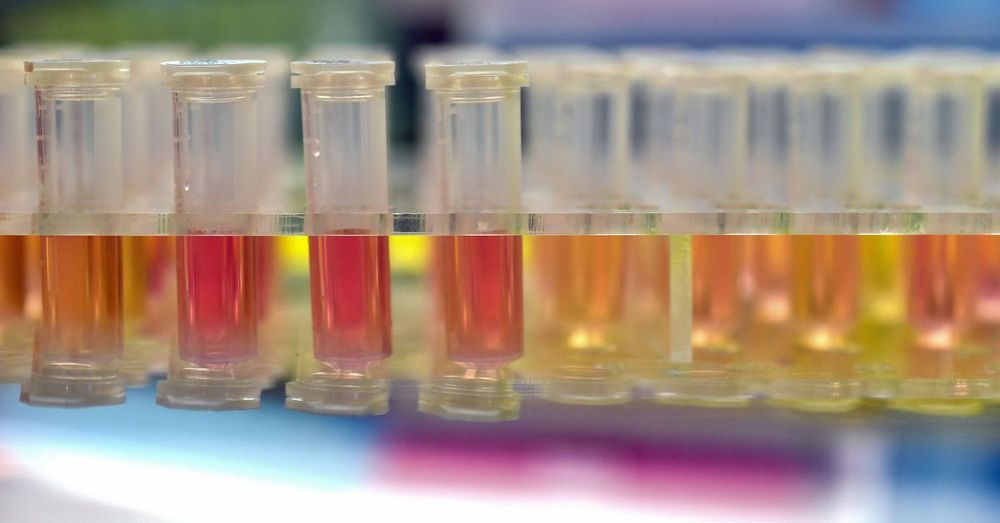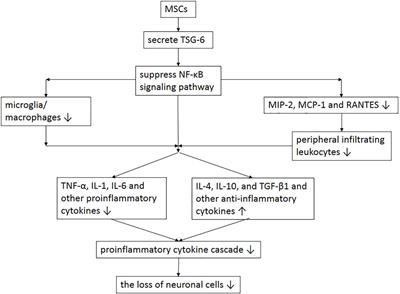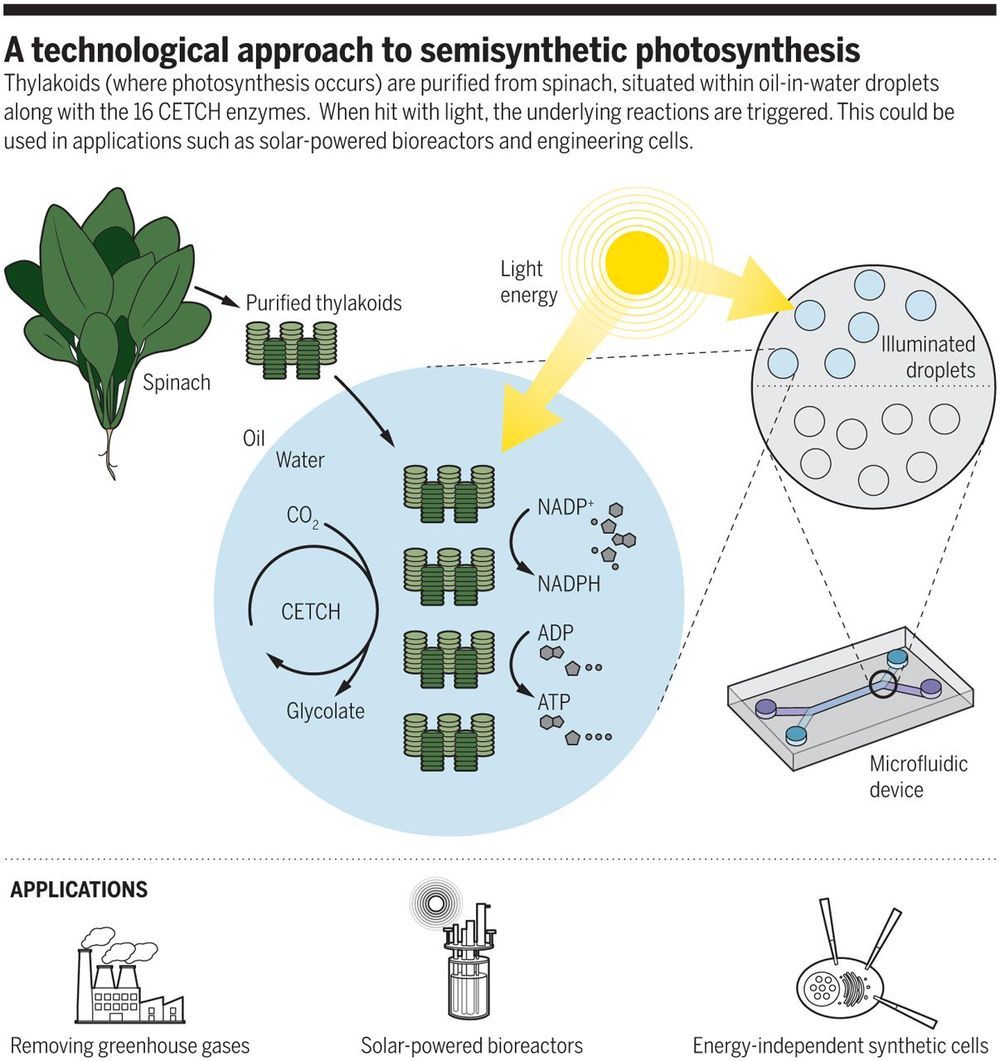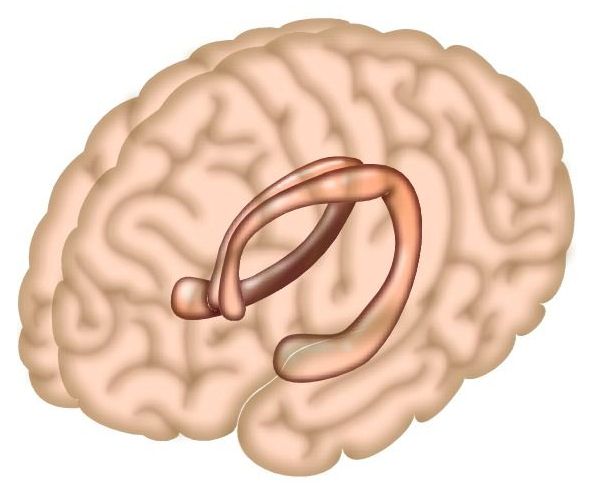CRISPR technology can quickly find and lock onto genetic sequences, like the one in the coronavirus. The test from Sherlock Biosciences uses that system to identify the virus in a patient sample.




Traumatic brain injury (TBI) is an important cause of human mortality and morbidity, which can induce serious neurological damage. At present, clinical treatments for neurological dysfunction after TBI include hyperbaric oxygen, brain stimulation and behavioral therapy, but the therapeutic effect is not satisfactory. Recent studies have found that exogenous stem cells can migrate to damaged brain tissue, then participate in the repair of damaged brain tissue by further differentiation to replace damaged cells, while releasing anti-inflammatory factors and growth factors, thereby significantly improving neurological function. This article will mainly review the effects, deficiencies and related mechanisms of different types of stem cells in TBI.
Traumatic brain injury (TBI) is a common and frequently occurring disease. According to the World Health Organization, TBI will become the main cause of human mortality and morbidity after 2020, which brings a heavy economic burden to patients and families (Maas et al., 2017). TBI is a disease which causes the destruction of normal brain function, and leads to serious physical, cognitive and emotional disorders. The pathophysiology of TBI mainly includes the break of the blood brain barrier (BBB), extensive neuroinflammation, diffuse axonal injury, and neurodegenerative lesions (Xiong et al., 2008). The pathological changes of brain injury are mainly the loss of normal tissue structure, destruction of neuronal cells and internal environment disturbance, among which neuronal cells injury is the key point. There is no effective drug treatment so far.

Wireless charging is already a thing (in smartphones, for example), but scientists are working on the next level of this technology that could deliver power over greater distances and to moving objects, such as cars.
Imagine cruising down the road while your electric vehicle gets charged, or having a robot that doesn’t lose battery life while it moves around a factory floor. That’s the sort of potential behind the newly developed technology from a team at Stanford University.
If you’re a long-time ScienceAlert reader, you may remember the same researchers first debuted the technology back in 2017. Now it’s been made more efficient, more powerful, and more practical – so it can hopefully soon be moved out of the lab.

Inducing human pluripotent cells.
Scientific Reports volume 10, Article number: 7752 (2020) Cite this article.

The creation of a fully artificial living cell would signify progress in both understanding current life and the development of synthetic organisms. A crucial component of any living organism is energy generation: the means to power its internal machinery. Because of their relative simplicity, catabolic reactions are the classical means for providing carbon and energy to synthetic cells, and much work has been done in optimizing which energy substrates work best for particular reactions ([ 1 ][1]). Despite robust success using small-molecule energy sources, the possibility of designing anabolic mechanisms that can harvest virtually limitless energy from light is very alluring yet remains unrealized.

A woman walking down the street hears a bang. Several moments later she discovers her boyfriend, who had been walking ahead of her, has been shot. A month later, the woman checks into the emergency room. The noises made by garbage trucks, she says, are causing panic attacks. Her brain had formed a deep, lasting connection between loud sounds and the devastating sight she witnessed.
This story, relayed by clinical psychiatrist and co-author of a new study Mohsin Ahmed, MD, Ph.D., is a powerful example of the brain’s powerful ability to remember and connect events separated in time. And now, in that new study in mice published today in Neuron, scientists at Columbia’s Zuckerman Institute have shed light on how the brain can form such enduring links.
The scientists uncovered a surprising mechanism by which the hippocampus, a brain region critical for memory, builds bridges across time: by firing off bursts of activity that seem random, but in fact make up a complex pattern that, over time, help the brain learn associations. By revealing the underlying circuitry behind associative learning, the findings lay the foundation for a better understanding of anxiety and trauma- and stressor-related disorders, such as panic and post-traumatic stress disorders, in which a seemingly neutral event can elicit a negative response.

Scientists from Princeton University and the Department of Energy’s Princeton Plasma Physics Laboratory (PPPL) have used radio frequency waves and temperature to stabilize the white-hot and volatile plasma that swirls inside of fusion reactors like tokamaks and stellarators.
The radio waves disrupt the magnetic islands that form and disrupt the plasma flow, and temperature magnifies the stabilizing effect. As the saying goes, the disruptor of your disruptor is your friend.
Quantum computer free access: 3.
Circa 2019
MIT’s Mini Cheetah robots are small quadrupedal robots capable of running, jumping, walking, and flipping.
In a recently published video, the tiny bots can be seen roaming, hopping, and marching around a field and playing with a soccer ball.
They’re not consumer products, but MIT hopes that the Mini Cheetah’s durable and modular design will make it an ideal tool for researchers.